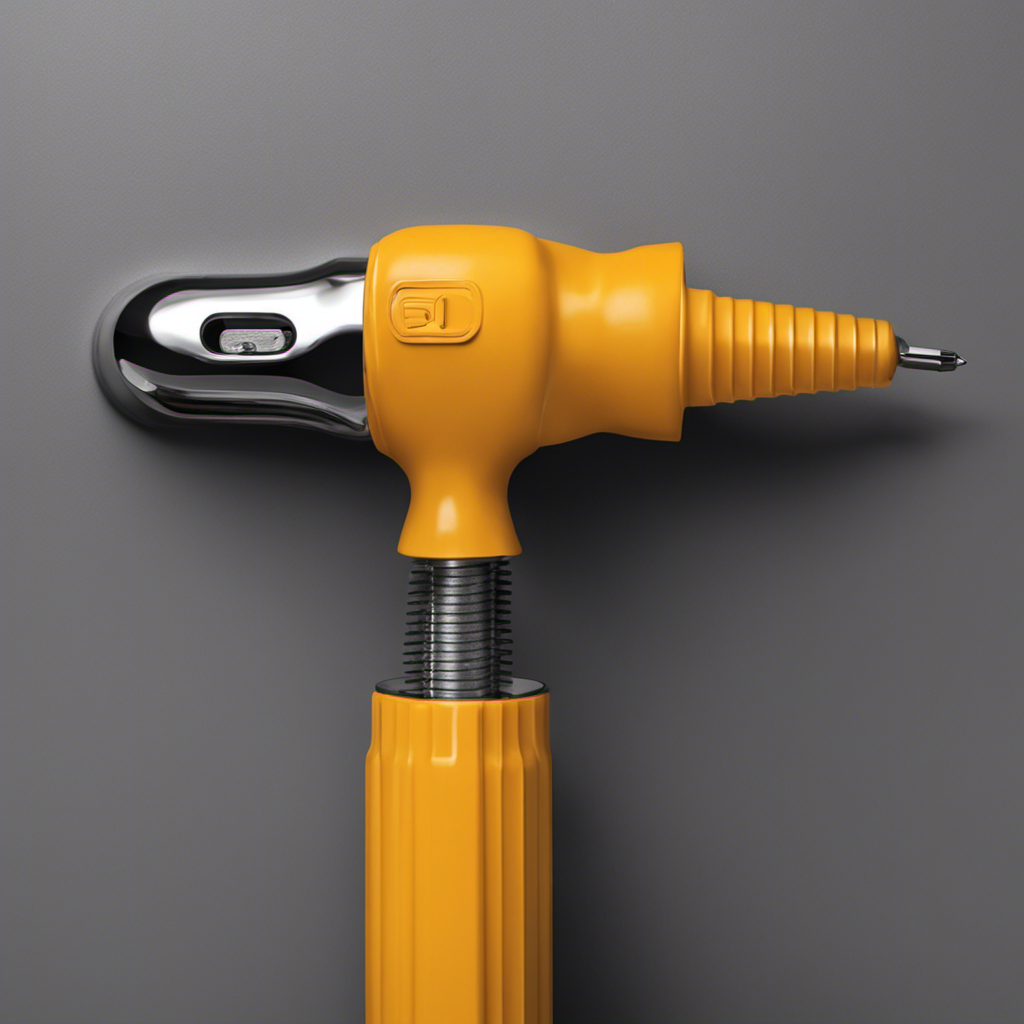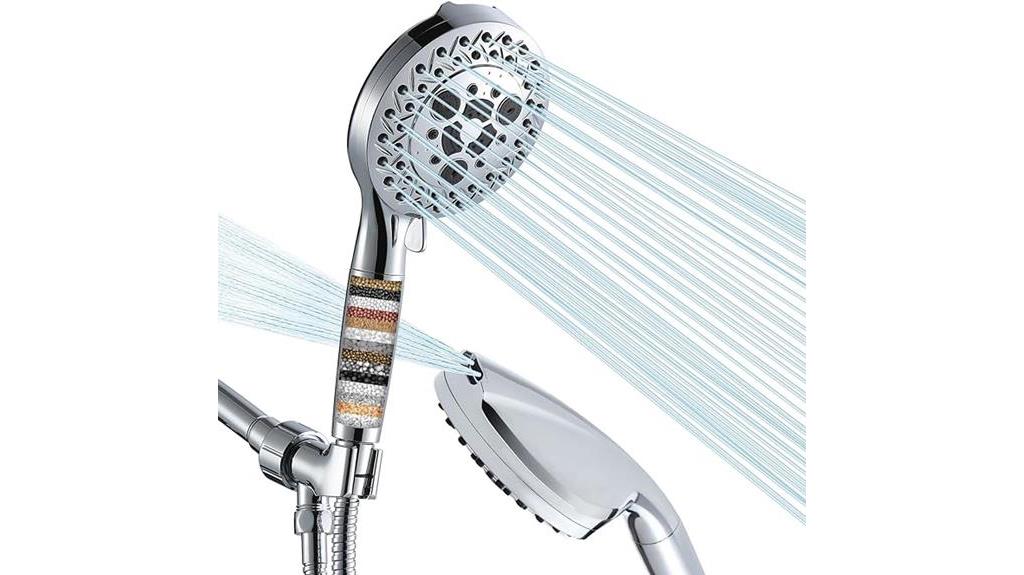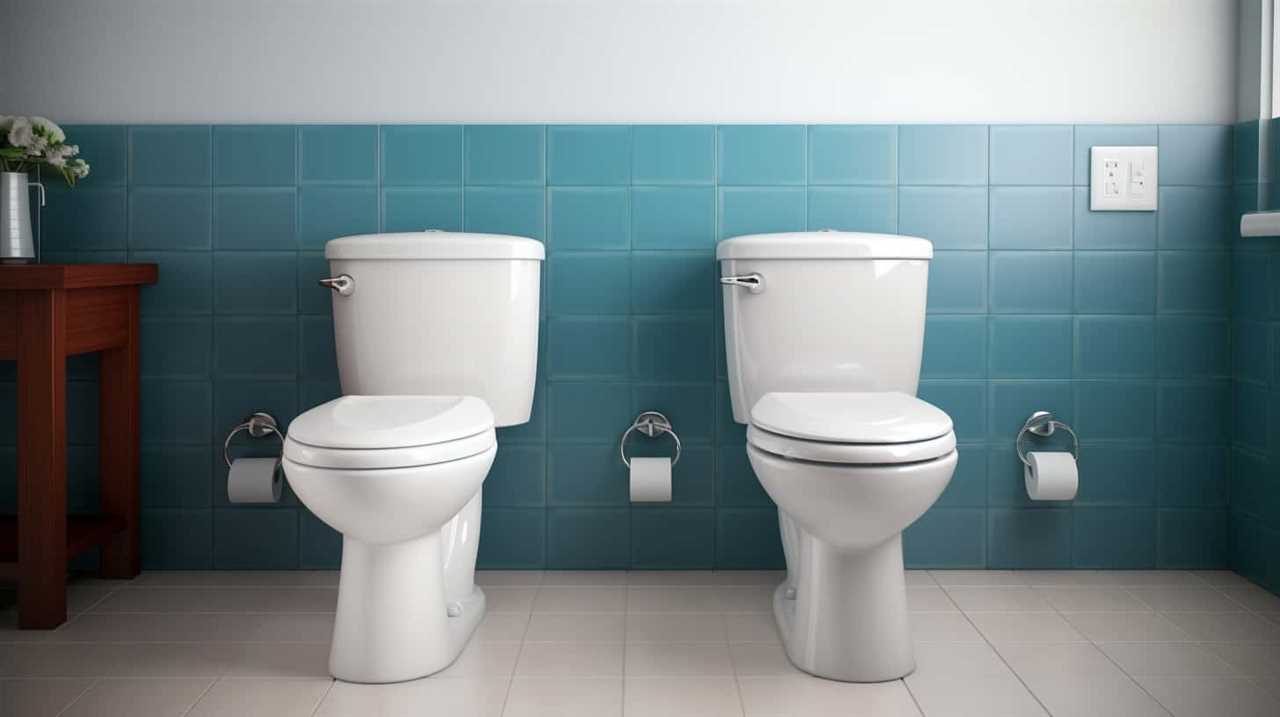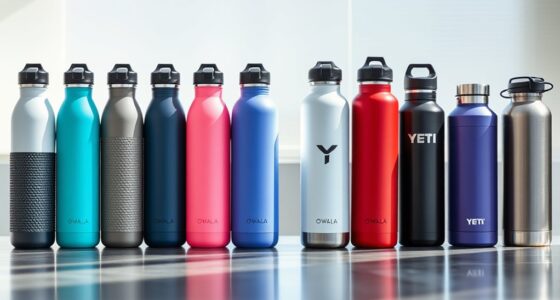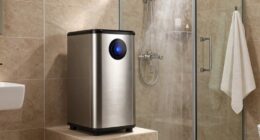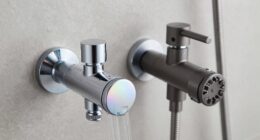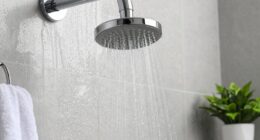We’ve all been there – standing in front of the toilet, ready to flush away our monthly woes. But before you hit that button, consider this: flushing feminine products can lead to a whole host of plumbing problems. From clogged pipes to costly repairs, the consequences can be a real headache.
In this article, we’ll delve into the environmental impact, sewer system damage, and safe disposal alternatives that make flushing a big no-no. Get ready to master the art of proper feminine product disposal.
Key Takeaways
- Flushing feminine products can cause major plumbing problems and result in costly repairs.
- Flushed feminine products have a detrimental environmental impact, especially due to their non-biodegradable materials.
- Proper disposal alternatives, such as wrapping used products in biodegradable bags or using menstrual cups, can prevent sewer backups and protect the environment.
- Promoting awareness, providing proper disposal options, labeling products with disposal instructions, and implementing regulations can encourage responsible disposal practices and reduce pollution.
Plumbing Problems
One common issue that can arise from flushing feminine products is that they can cause major plumbing problems when they clog the pipes. Flushing tampons, pads, and other feminine hygiene products can lead to blockages in the plumbing system, resulting in costly repairs and inconveniences. These products aren’t designed to break down in water like toilet paper, and their improper disposal can lead to serious consequences.
To prevent such issues, it’s important to follow some maintenance tips. Firstly, ensure that you have a designated trash can in your bathroom specifically for feminine products. Secondly, educate everyone in your household about the importance of not flushing these items. Lastly, consider providing informative signage in your bathrooms to remind guests and visitors about the proper disposal of feminine products.
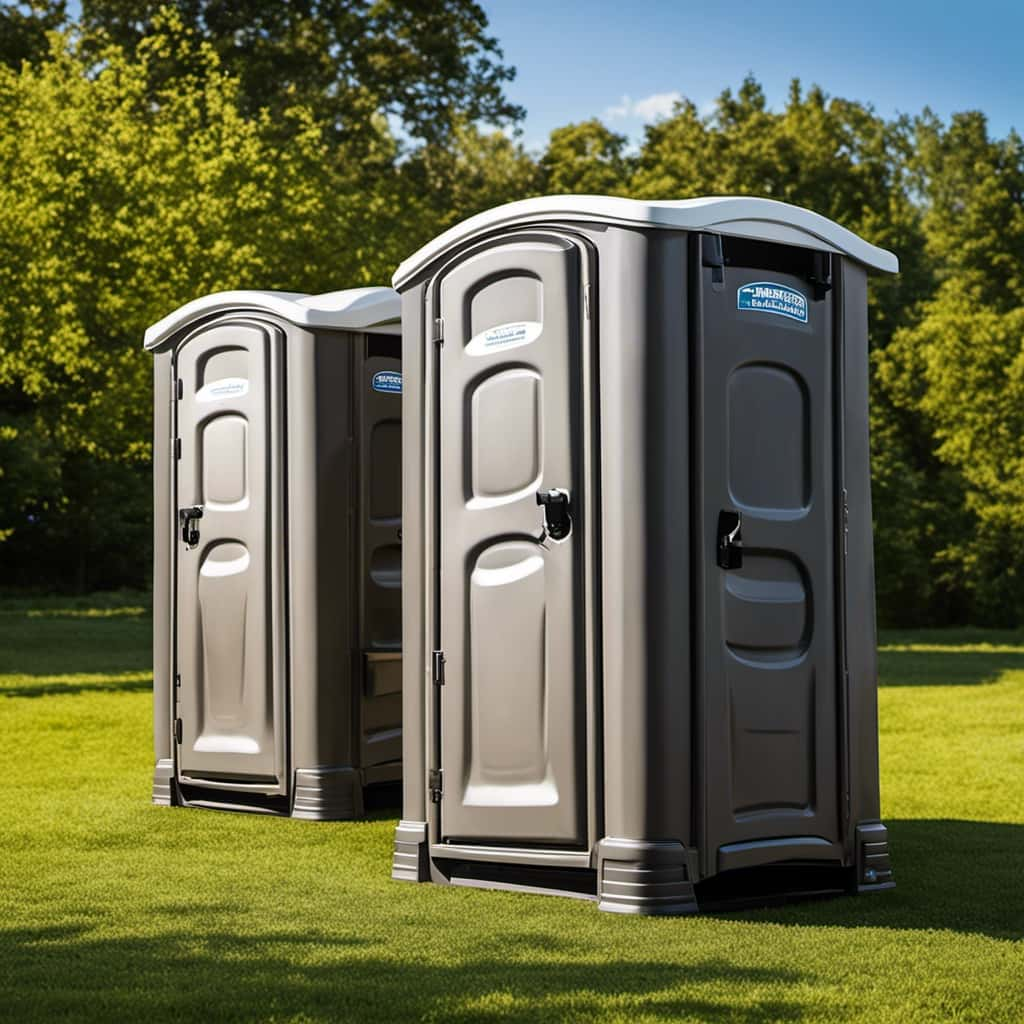
Environmental Impact
Flushing feminine products regularly can have a detrimental environmental impact. Proper waste management is essential to prevent pollution and protect our ecosystems. When feminine products are flushed down the toilet, they can end up in our waterways, causing a range of environmental issues.
Firstly, these products can clog pipes and sewage systems, leading to costly repairs and backups. This not only affects the functionality of our plumbing systems but also poses a risk of sewage overflow, which can contaminate our water sources. Additionally, many feminine products are made of non-biodegradable materials, such as plastic and synthetic fibers, which can persist in the environment for hundreds of years.
To prevent these problems, it’s crucial to dispose of feminine products properly by wrapping them in toilet paper or using designated disposal bins. This ensures that they’re managed as solid waste and undergo proper treatment and disposal, minimizing their environmental impact.
Costly Repairs
To avoid costly repairs, we should refrain from flushing feminine products down the toilet. Flushing these items can lead to high maintenance and clogged drains, which can be expensive and time-consuming to fix.
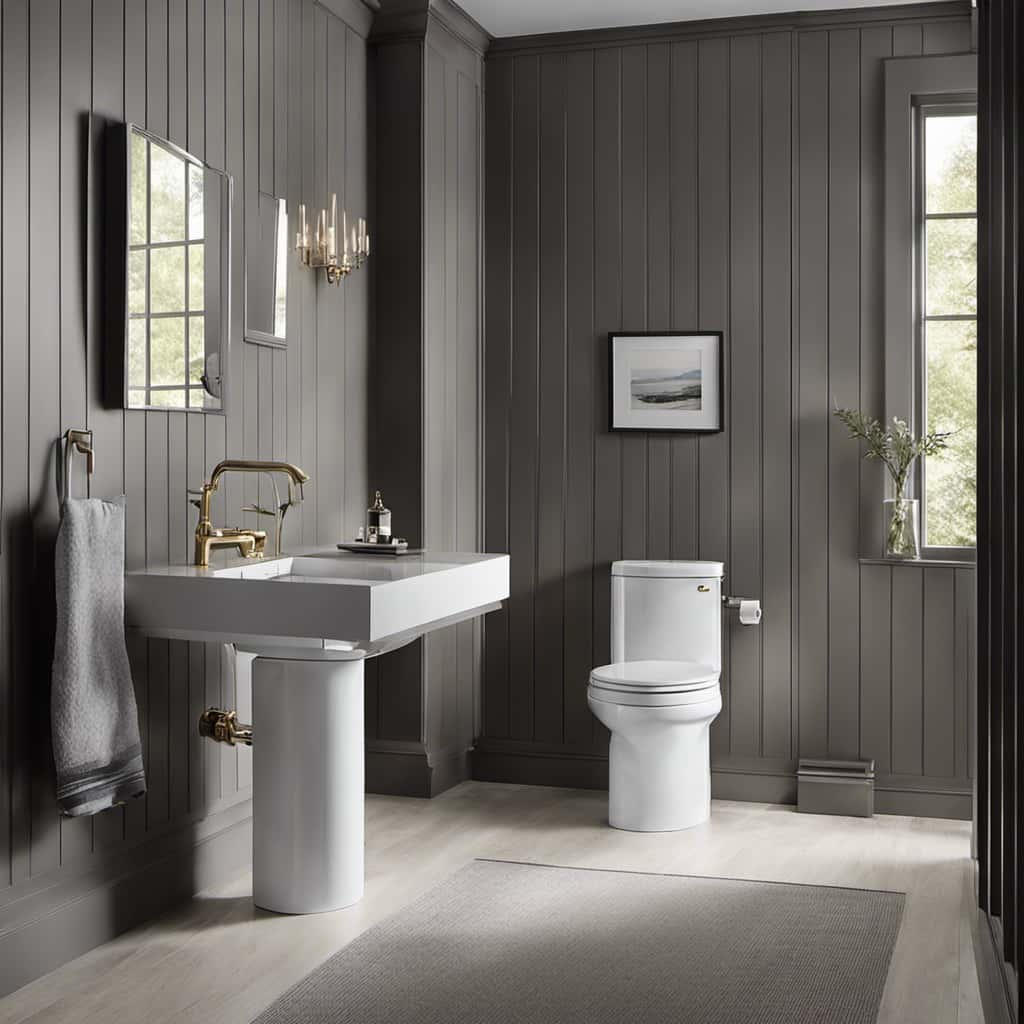
Here are four reasons why flushing feminine products is a bad idea:
- Clogged pipes: Feminine products, such as tampons and sanitary pads, don’t break down easily in water. When flushed, they can get stuck in the pipes, causing blockages and potential damage to the plumbing system.
- Backed-up toilets: Flushing feminine products increases the risk of toilet backups. This can lead to overflowing toilets, water damage, and the need for professional assistance to fix the issue.
- Expensive repairs: Clearing clogged drains and fixing damaged plumbing can be costly. Hiring a plumber to unclog pipes or repair damaged sewer lines can result in a significant financial burden.
- Environmental impact: Flushing feminine products can also harm the environment. These non-biodegradable items can end up in lakes, rivers, and oceans, polluting the water and endangering aquatic life.
Sewer System Damage
As we continue our discussion on the consequences of flushing feminine products, it’s important to address the potential damage they can cause to the sewer system. Sewer backups and clogged pipes are common issues that can result from flushing feminine products.
Unlike toilet paper which breaks down easily, feminine products such as pads, tampons, and wipes don’t dissolve in water. Instead, they can accumulate and form blockages in the pipes, leading to backups and potential damage to the sewer system. These blockages can be costly to repair and may require the services of a professional plumber.
It’s essential to dispose of feminine products properly in the trash to prevent these issues and maintain the integrity of our sewer systems.
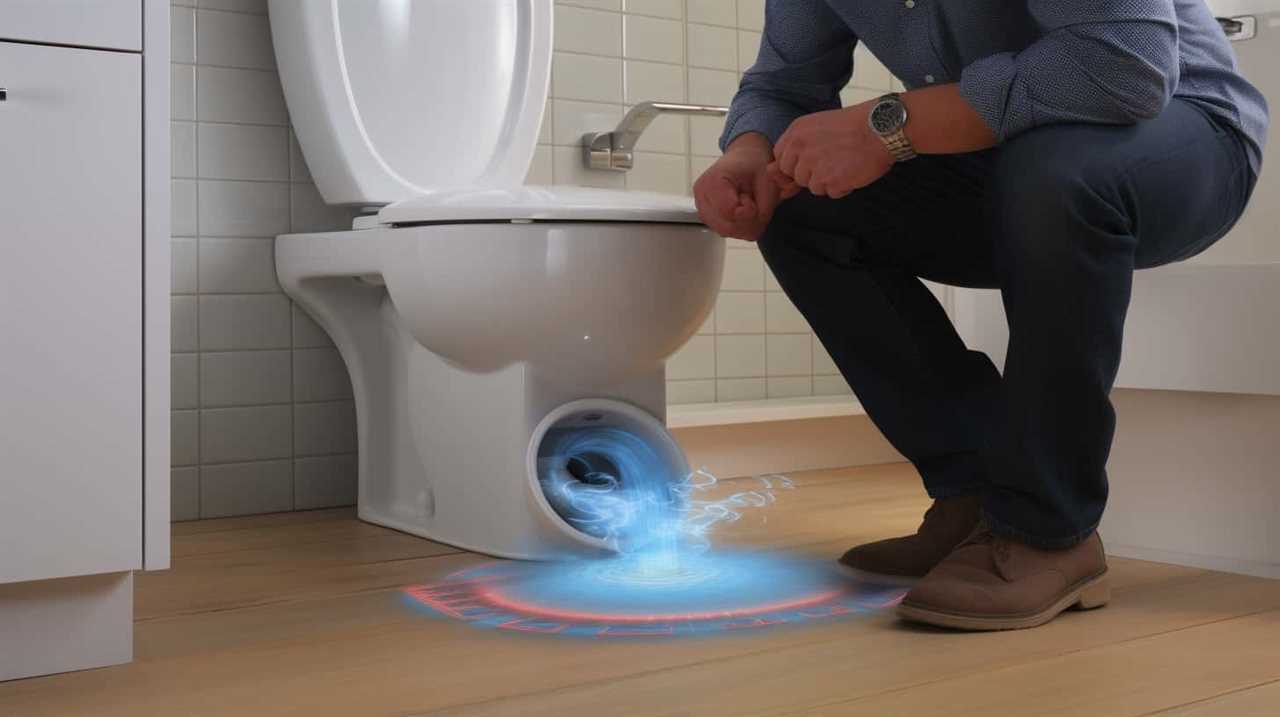
Safe Disposal Alternatives
To prevent sewer backups and maintain the integrity of our sewer systems, we can explore safe disposal alternatives for feminine products. It’s important to consider the environmental impact of these products and opt for biodegradable options whenever possible.
Here are four safe disposal alternatives to consider:
- Wrap it up: Use biodegradable bags or wrappers to securely wrap used feminine products before disposing of them in the trash. This helps contain any odors and prevents them from coming into contact with other waste.
- Dedicated disposal bins: Install dedicated bins in bathrooms for the disposal of feminine products. These bins should be lined with biodegradable liners and regularly emptied to prevent any unpleasant odors or overflow.
- Incineration: Some communities offer incineration services for feminine products. This method safely burns the products and reduces their impact on landfills.
- Menstrual cups and reusable pads: Consider switching to eco-friendly alternatives like menstrual cups or reusable cloth pads. These options eliminate the need for disposal altogether and significantly reduce the landfill impact associated with traditional disposable products.
Frequently Asked Questions
Are There Any Specific Types of Feminine Products That Can Be Safely Flushed Down the Toilet?
There aren’t any specific types of feminine products that can be safely flushed down the toilet. It’s important to follow safe disposal methods and consider biodegradable options to minimize environmental impact.
Can Flushing Feminine Products Cause Damage to Household Plumbing Systems?
Flushing feminine products can wreak havoc on household plumbing systems. We’ve seen firsthand the costly consequences of clogged pipes and sewer backups. To prevent damage, dispose of these products in the trash, not the toilet.

How Can Flushing Feminine Products Impact the Environment?
Flushing feminine products can have a negative impact on water quality and potentially harm marine life. It’s important to be aware of the environmental consequences of flushing these items and dispose of them properly.
What Are the Potential Costly Repairs That Can Arise From Flushing Feminine Products?
Potential costly repairs can arise from flushing feminine products. It is important to be aware of the potential environmental consequences and to use proper disposal methods to avoid these issues.
Are There Any Safe and Effective Alternatives for Disposing of Feminine Products?
There are eco-friendly disposal methods available for feminine products, such as using biodegradable options. These alternatives not only help protect the environment but also provide effective and safe ways to dispose of them.
Conclusion
In conclusion, it’s crucial to remember that flushing feminine products down the toilet can have severe consequences. Beyond the obvious plumbing problems and costly repairs they can cause, there’s also a significant environmental impact to consider.
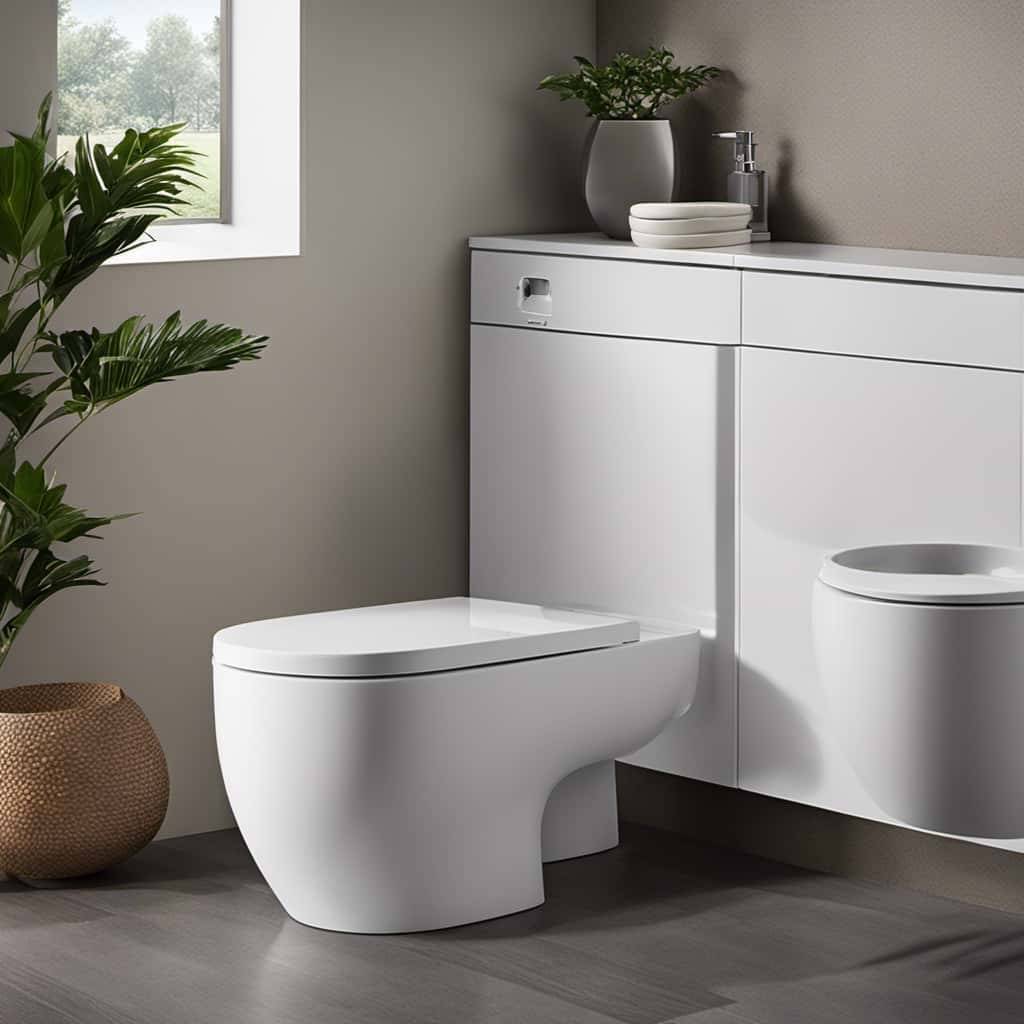
By symbolizing the potential damage that can be done, we hope to evoke a sense of responsibility and encourage safe disposal alternatives.
Let’s be mindful of the impact our actions have on our surroundings and make choices that protect our environment and preserve our sewer systems.

